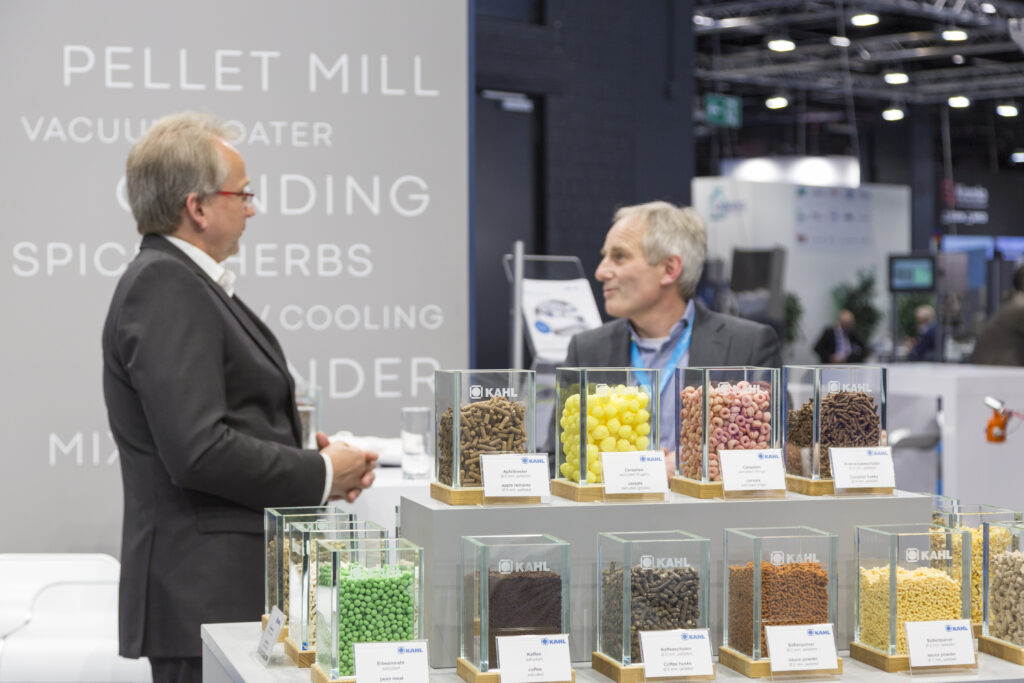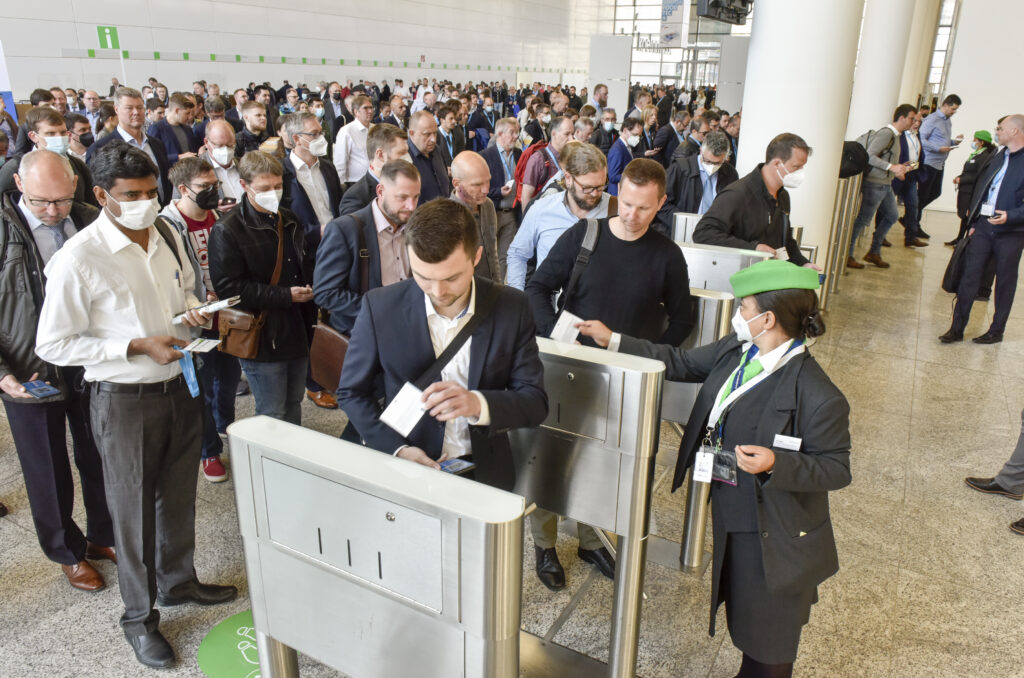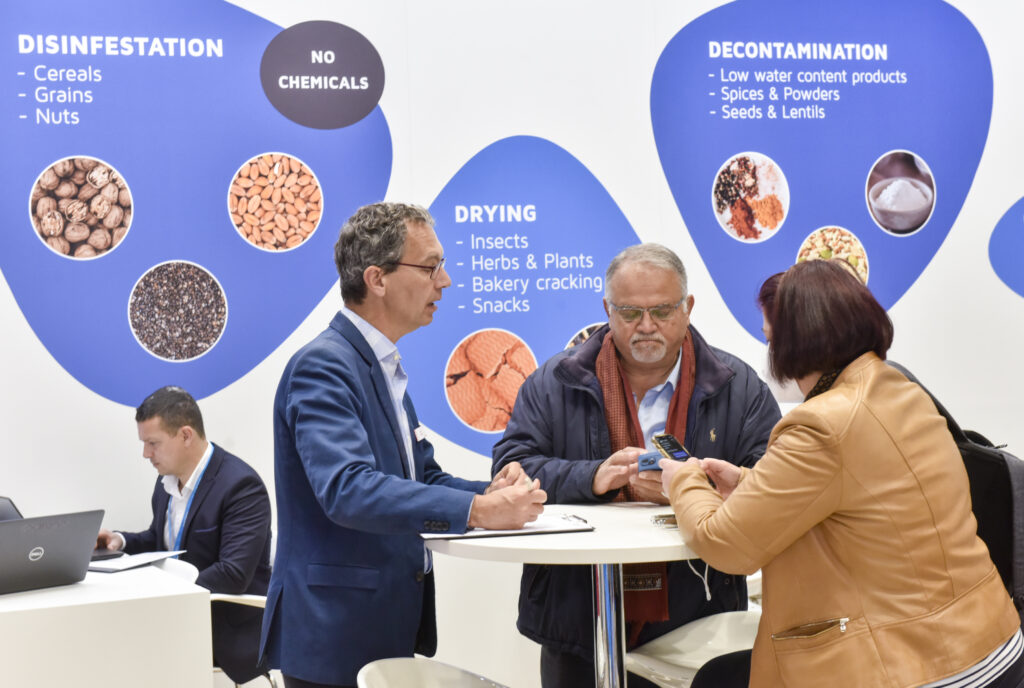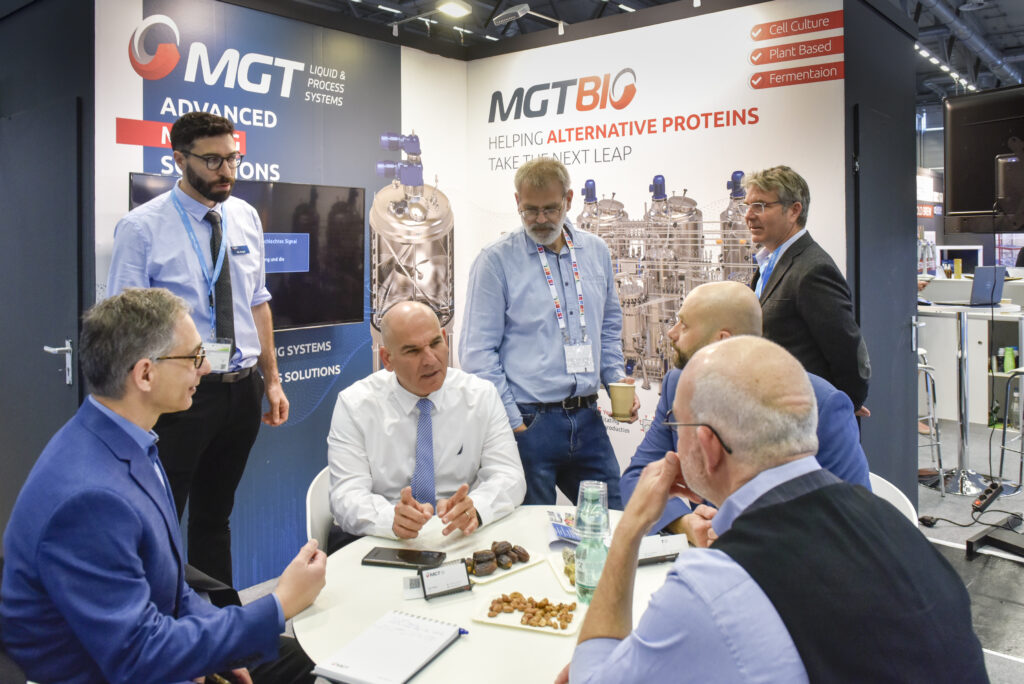From 19 to 22 March 2024, the leading providers of innovative and practice-oriented sensor solutions will once again set standards at Anuga FoodTec when it comes to successfully advancing process safety and efficiency in food and beverage production. High performance sensors that assume many functions of communication across systems – both of machine to machine and of machine to cloud – will be presented on the Cologne fair grounds.
 Sensors are indispensable elements for automation. With rapid reaction times as well as reliable and accurate measured values, they have for decades been assisting food producers in optimising their processes and in thus saving energy, time and media. However, the tasks of measurement technology are also transforming in the course of digitalisation and networking. “Only” measuring process parameters is no longer enough today. The more complex the automation scenario, the more extensive the requirements for sensor precision and reliability. The large amounts of data pose new challenges for the configuration and connection of measurement technology. Classic sensors that provide binary signals for the control system find their limits here. They are increasingly being replaced by sensor systems in which signal preparation and processing are united in one housing together with the actual recording of measurement parameters.
Sensors are indispensable elements for automation. With rapid reaction times as well as reliable and accurate measured values, they have for decades been assisting food producers in optimising their processes and in thus saving energy, time and media. However, the tasks of measurement technology are also transforming in the course of digitalisation and networking. “Only” measuring process parameters is no longer enough today. The more complex the automation scenario, the more extensive the requirements for sensor precision and reliability. The large amounts of data pose new challenges for the configuration and connection of measurement technology. Classic sensors that provide binary signals for the control system find their limits here. They are increasingly being replaced by sensor systems in which signal preparation and processing are united in one housing together with the actual recording of measurement parameters.
Smart automation starts with the sensor
At Anuga FoodTec, measurement technology providers, including, for example, Baumer, Endress+Hauser, ifm, Siemens, Vega, Optel and Beckhoff, will show how food producers also remain competitive with smart sensors in times of Industry 4.0. What all developments have in common is that digitalisation is not being promoted for its own sake, but is instead taking place against a practical background. Self-explanatory operating concepts, sensor diagnostics as well as possibilities for wireless data transfer are viewed as key concepts for smart processes. In addition to high resolution measurement technology, artificial intelligence and deep learning algorithms also play an important role here. The more intelligence is integrated into the sensor in the form of sophisticated signal processing the more possibilities for self-monitoring and reconfiguration arise.
 This development is reflected in multi-sensor systems in the Cologne exhibition halls. They make it possible for traditional technologies that are used for the measuring of flow and filling level to record other substance properties also relevant for quality. Examples of this are solutions based on the modulation of surface acoustic waves (SAW). With this measuring principle, the sensors work under perfectly hygienic conditions, meaning without fixed or moveable components. There are no dead spaces, which makes cleaning easier. One special feature is that SAW sensors are suitable for the measurement of both static and rapidly changing conditions. In addition to flow, density and temperature, they can also record additional values like mass, density and Brix. Gas bubbles and particles in liquids can also be recognised via the density factor. The technology makes it possible, for example, to define the original extract in the brewing process. That means that quality control no longer takes place randomly in the lab, but instead immediately and in real time – a possibility that beverage manufacturers did not previously have in this form.
This development is reflected in multi-sensor systems in the Cologne exhibition halls. They make it possible for traditional technologies that are used for the measuring of flow and filling level to record other substance properties also relevant for quality. Examples of this are solutions based on the modulation of surface acoustic waves (SAW). With this measuring principle, the sensors work under perfectly hygienic conditions, meaning without fixed or moveable components. There are no dead spaces, which makes cleaning easier. One special feature is that SAW sensors are suitable for the measurement of both static and rapidly changing conditions. In addition to flow, density and temperature, they can also record additional values like mass, density and Brix. Gas bubbles and particles in liquids can also be recognised via the density factor. The technology makes it possible, for example, to define the original extract in the brewing process. That means that quality control no longer takes place randomly in the lab, but instead immediately and in real time – a possibility that beverage manufacturers did not previously have in this form.
Data brought into the cloud
Parallel with this, communication standards like OPC UA are also asserting themselves in the food industry. It is thus possible to communicate through and into all automation levels – even into the cloud. Having arrived there, they can be evaluated as desired. For example, the vibration frequency of the pipe or the temperature of the electronics can also be read out in addition to the process value from a Coriolis Mass Flow Meter. In addition to the monitoring of the current state of the measuring device, this data can also be drawn upon for preventive maintenance. The sensors can send the diagnosis codes to a Condition-Monitoring-System with the aim of initiating a timely inspection of the sensor before this no longer delivers any data. This makes it possible to reduce the number of system down times and process interruptions.
 The communication of the field devices with the cloud takes place via gateways and edge devices on a second channel parallel with the control circuit. In order to be able to operate both communications levels simultaneously and independently from one another, the interfaces necessary for this have already been integrated into Industry 4.0-capable sensors on the hardware side. Many measuring points in existing systems can also be retrofitted with wireless interfaces like WirelessHart, Wi-Fi or Bluetooth. Another advantage of the latest sensor generation is the integrated web server. This not only fulfils modern cybersecurity requirements but also enables simple and comfortable commissioning with mobile devices. The entire configuration and diagnosis takes place via a standard web browser. More extensive knowledge of PLC programming is unnecessary.
The communication of the field devices with the cloud takes place via gateways and edge devices on a second channel parallel with the control circuit. In order to be able to operate both communications levels simultaneously and independently from one another, the interfaces necessary for this have already been integrated into Industry 4.0-capable sensors on the hardware side. Many measuring points in existing systems can also be retrofitted with wireless interfaces like WirelessHart, Wi-Fi or Bluetooth. Another advantage of the latest sensor generation is the integrated web server. This not only fulfils modern cybersecurity requirements but also enables simple and comfortable commissioning with mobile devices. The entire configuration and diagnosis takes place via a standard web browser. More extensive knowledge of PLC programming is unnecessary.
Industry 4.0 expertise for the entire industry
 On site at Anuga FoodTec, visitors can convince themselves how easily and expeditiously current automation tasks can be carried out with smart sensors. The technology providers will present a complete portfolio of hygienic flow, filling level, temperature, pressure and other analysis sensors that are especially oriented to the requirements in the food and beverage industries from 19 to 22 March 2024. They allow insight into the process and provide system operators with important diagnostic and process data. The offering extends from sensors and connectivity components through online services and apps for various diagnostics tasks. Food producers who have already progressed extensively with their implementation in the sense of Industry 4.0 and are considering direct communication with a cloud solution or with another higher level system will find future-proof solutions in Cologne.
On site at Anuga FoodTec, visitors can convince themselves how easily and expeditiously current automation tasks can be carried out with smart sensors. The technology providers will present a complete portfolio of hygienic flow, filling level, temperature, pressure and other analysis sensors that are especially oriented to the requirements in the food and beverage industries from 19 to 22 March 2024. They allow insight into the process and provide system operators with important diagnostic and process data. The offering extends from sensors and connectivity components through online services and apps for various diagnostics tasks. Food producers who have already progressed extensively with their implementation in the sense of Industry 4.0 and are considering direct communication with a cloud solution or with another higher level system will find future-proof solutions in Cologne.
Anuga FoodTec is the leading international supplier fair for the food and beverage industry. Organised by Koelnmesse, the trade fair takes place from 19 to 22 March 2024 in Cologne and places the emphasis on the key theme of Responsibility. The professional and industry sponsor is the DLG, the German Agricultural Society.




